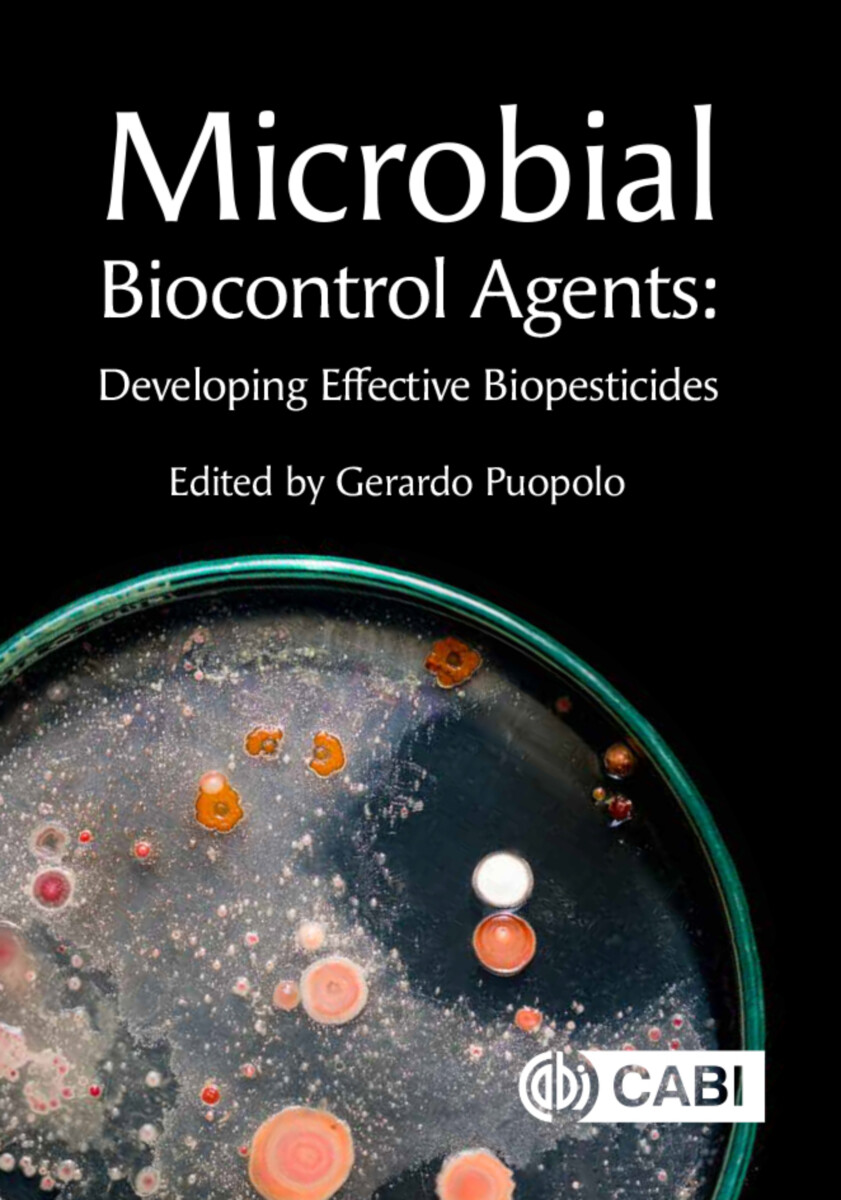Microbial Biocontrol Agents
Developing Effective Biopesticides
- Publisher
CABI - Published
4th January 2023 - ISBN 9781789249187
- Language English
- Pages 208 pp.
- Size 6" x 9"
The negative impact of chemical pesticides on human wellbeing and the environment has encouraged the development of eco-friendly alternatives for the management of plant pathogens. However, only a small number of microbial biocontrol agents (mBCAs) have been developed, registered, and used in the management of plant diseases. This book analyzes the deployment of mBCAs for the development of novel microbial biopesticides, considering the main plant-beneficial traits, procedures needed for effective formulations and the processes used for their validation.
To guide the readers through the world of microbial biopesticides, the book starts with a chapter dedicated to the regulations that need to be followed for the development of final products. Readers will understand the importance of formulation and mode of action of mBCAs in developing microbial biopesticides. They will become familiar with key mBCAs such as Ampelomyces quisqualis, Bacillus spp., Trichoderma spp., and Pseudomonas spp., understanding the importance of formulation for their application in the field. This book explains the use of mBCAs to control post-harvest diseases and the potential of endophytic microorganisms as next-generation microbial biopesticides.
A final chapter provides a useful workflow for the selection of new mBCAs and describes microbial species including promising mBCAs that might be developed as new microbial biopesticides. This book:
- Gives useful insights into the practicalities of regulation of mBCAs
- Describes the underlying biology that it is critical to developing mBCAs
- Provides case studies for key mBCA species
- Indicates microbial species exploitable for the development of new microbial biopesticides
Gerado Puopolo
Gerado Puopolo is Associate Professor of Plant Pathology at the University of Trento, Italy. He received his PhD from the University of Naples “Federico II,” Italy and spent several years as Post-Doc at this university and FEM. The finding of novel sustainable strategies for the control of plant pathogens represents the core of his research. He focused on the characterization of fungal and bacterial biocontrol agents belonging to the genera Ampelomyces, Bacillus, Pseudomonas, and Trichoderma. He has studied bacterial biocontrol agents belonging to the genus Lysobacter, selecting and characterizing L. capsici AZ78, one of the few biocontrol agents effective against Phytophthora infestans and Plasmopara viticola, respectively causal agents of potato late blight and grapevine downy mildew, two devastating diseases worldwide. His works helped finely dissect the mode of action of Lysobacter biocontrol agents and the development of a new biospesticide with a Lysobacter strain as main active ingredient.


